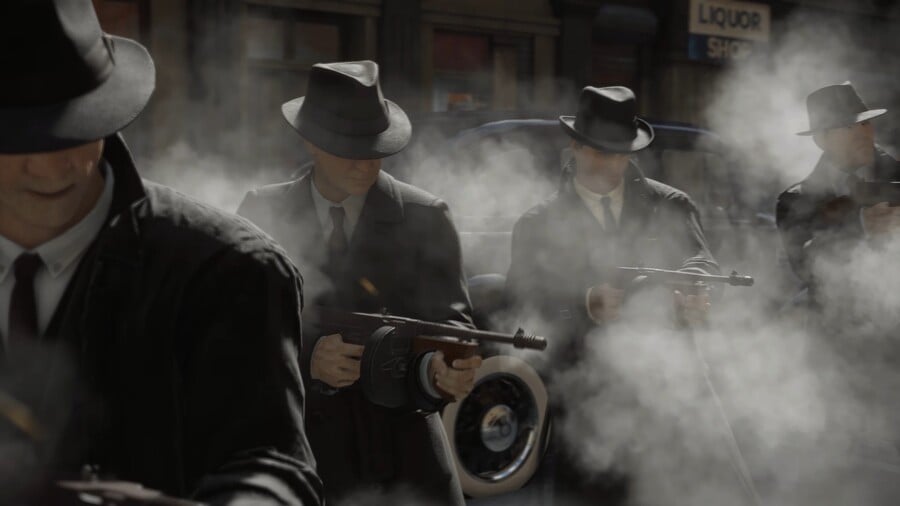
We had the chance to sit down and have a chat with composer Jesse Harlin recently about his work on the upcoming ground-up remake of Mafia, Mafia: Definitive Edition. We got to chatting about how an infamous car chase turned into a confidence bolstering music track, what influenced the operatic framing of the soundtrack, and how this soundtrack is a whole different beast from the title's first go-around.
Push Square: The score for the original game back in 2002 was tackled by Vladimir Šimůnek. In what ways did you want to draw attention to the legacy of the previous version’s sound? And in what ways were you hoping to carve out your own niche? By and large, the entire game is new from the ground up, so too would the music be.
Jesse Harlin: Yes, the characters and story arc are the same, but the performances in the cutscenes, the timing of them, the actual dialogue is different. So, too, are the expectations that gamers have in 2020 versus 2002. A cinematic game could get away with repeating music more often or even be more silent than games today tend to be. The original game’s score was only 30 minutes long. That’s not a lot of music for an open-world game.
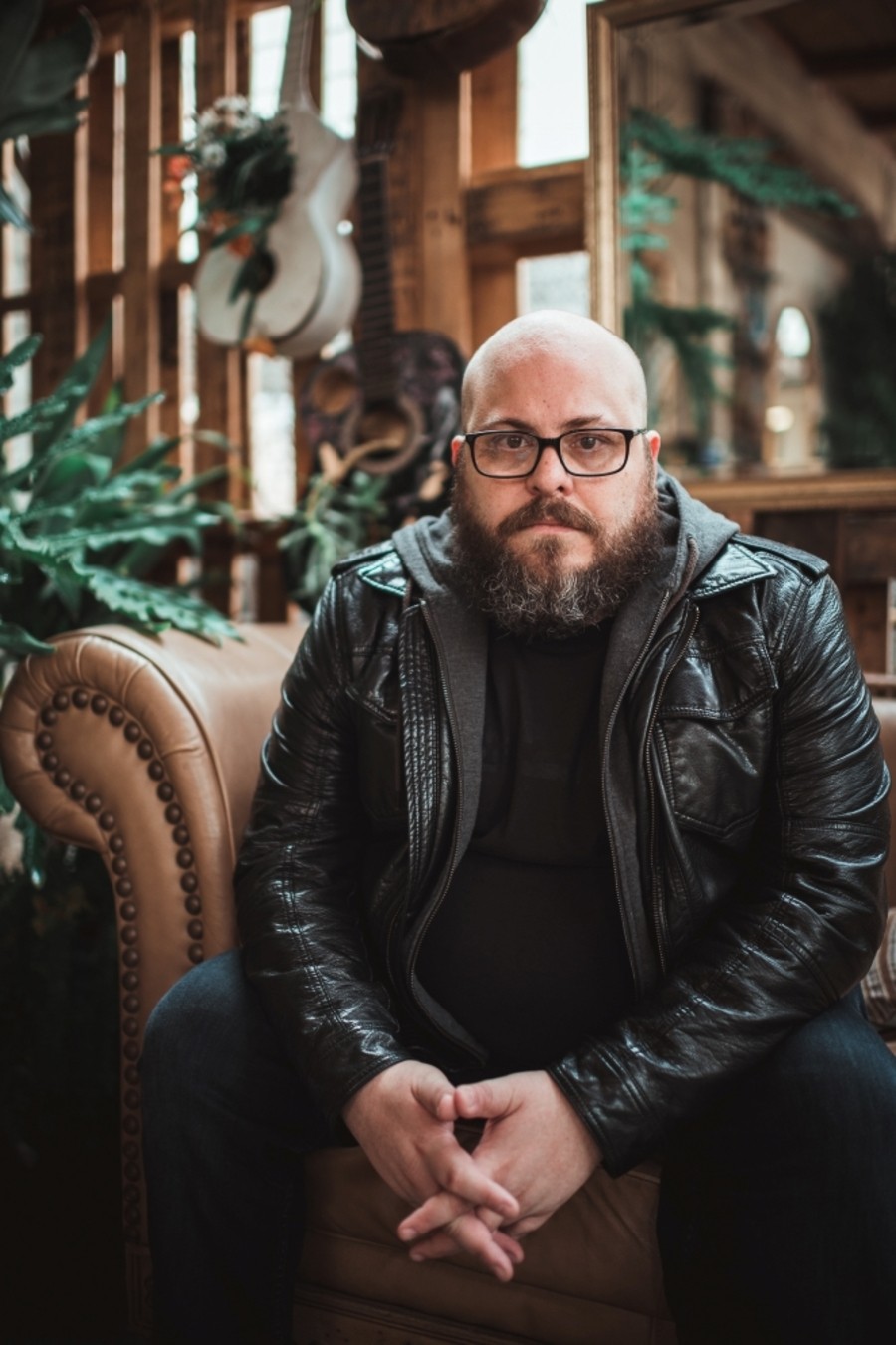
2K decided that they wanted a new score for the game. But we didn’t want to make a score that was completely foreign to the audience. So, I worked with Matt Bauer, Hangar 13’s Audio Director, to find a balance that was a new score but touched on the older one. What I ended up doing was taking the first eight bars of Šimůnek’s original Main Theme and using that as one of my primary melodic themes for the new game’s score. I use it as a melody, countermelody, harmonic progression, etc. There’s a whole slew of ways that those original eight bars find themselves woven into the new score.
There’s a certain expectation of sound when it comes to a gangster film or game. In what ways did you hope to lean into expectation? And where did you want to deviate? Instrument choice? Melody composition? Anywhere specific?
For me, I like to start with reading the script to a game - if it’s available. Mafia: Definitive Edition’s script was, so I dove in. I wasn’t familiar with the original game and I wanted to avoid familiarizing myself with it so that I could come to Mafia: DE with a fresh perspective.
When I read through the script, I found that I was reading a classical tragedy. It’s a story of a man who rises up from nothing to a made man, but he has more humanity than those around him and so trouble is inevitable. I also started thinking about the characters and where they come from. By 1930, the youngest of them are in their 30s. This means that all of these characters come from the 19th century, not the 20th century. Most of them are Italian, some actually from Sicily and Italy. I thought a lot about what kind of music those characters would have been exposed to - Italian folk music, Catholic church music, opera, and then a touch of Chicago-style jazz due to the setting. So, that’s where I started stylistically. I wanted the score to reflect who the characters were and where they’d come from, not just where they were at the moment.
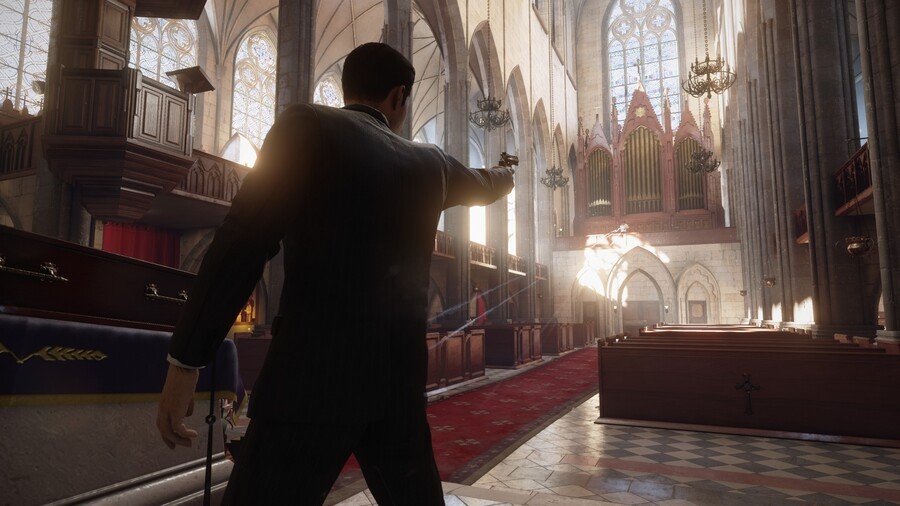
In the correspondences arranging the interview, it was mentioned that you think this is your best score to date. I’d love to hear in your words why you feel that is. This is a spectacular score for the record! Had it playing the whole time I was formatting the interview!
So glad to hear you enjoyed it!
I’ve been at this now professionally for 21 years and I’ve never been the kind of musician who feels like ethereal muses speak through me. For me, music is a craft. A job. It’s work. I labor over which notes are right in each chord, which instruments have the right color for what I’m trying to accomplish creatively. So when I reach the end of a score, it’s like having just hammered and chiseled away at a giant block of marble for months. I’m less able to step back and appreciate the work as a whole. Instead, I’m so completely aware of every creative compromise, every little wart and blemish in the music. The older I get, the fewer of those blemishes seem to be there. I’m happier and happier with the final products.
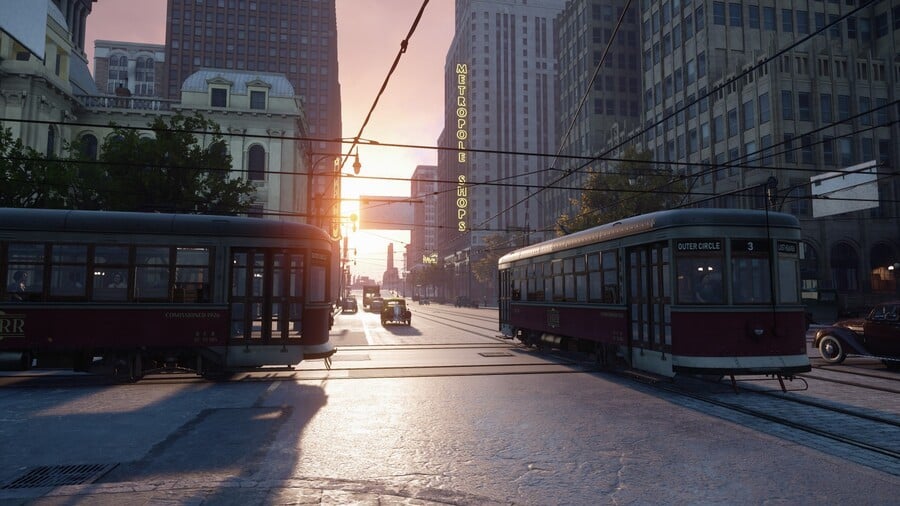
With the score for Mafia: DE, I wrote a piece of music that had me finally say to myself “This. This is the piece that makes me able to say that I’m a composer.” There’s an infamous race car sequence in Mafia. The original game doesn’t have any music during the race, but the development team for Mafia: DE asked me to write a two-minute chase music cue and they asked me to do it over a weekend. Then, as reference material, they handed me this piece of elaborate classical music from Shostakovich or Mahler or someone. I can’t remember who it was now. But I remember thinking “how the hell am I going to do this by Monday?” But I did. And it turned out really well. Ever since then, I’ve been able to point to that cue in times of self-doubt and say to myself, “You got this. You can do it. You wrote that race cue in a couple of days. You’re a composer and you can do it.”
What would you cite as influences when it came time to craft this score beyond what we’ve spoken of already? Your own score for Mafia III? Films? Books? (There were quite a few things that stood out to me, curious if there was any sort of overlap. James Bond, John Williams, and Michael Giacchino being some standouts.
I’ve been professionally writing Star Wars music for games for 16 years now and the films’ soundtracks were an integral part of my influences as a kid, so I suppose it’s almost impossible to not have some element of John Williams show up in my writing. But I’d also say that the works of French composer Gabriel Fauré are always a big influence on me. His melody writing is second to none. Edvard Grieg, too, for the same reason. I spent some time listening to other Romantic Era composers like Mahler and Tchaikovsky. I spent time listening to Italian folk music.
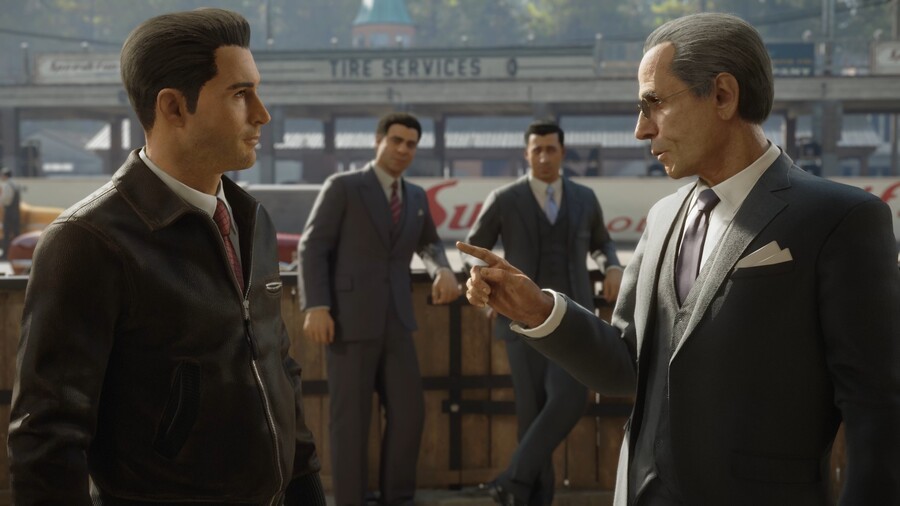
I think the biggest influence wasn’t something I listened to, but probably the game’s script. I read through it and really internalized the struggles the characters go through in terms of power, friendship, loyalty, betrayal, and revenge. These emotional beats stuck with me, particularly the story of Don Salieri’s consigliere, Frank. For some reason, I really reacted to Frank’s story and had him in mind when I was writing a lot of the Salieri-themed music for the game.
What I hardly listened to at all was the existing Mafia franchise music. Mafia III wasn’t applicable and 2K were asking me to write something different from the existing score for the original Mafia. I’ve listened through the original Mafia score twice. The first time was right after Hangar 13 initially called me about the gig. This was in 2018, I think, and I wanted to familiarize myself with the game since I’d largely ignored it when working on Mafia III’s blues score. The only other time I listened to the original game’s score was after I was all done with the new one. I was curious to see how different the two scores sounded. They’re definitely different, but I was surprised by how similar many of the emotional beats were. I think that speaks to the influence of the story. The story of Tommy Angelo has a very understandable emotional arc and I think both Šimůnek and I were probably reacting to similar influences within it.
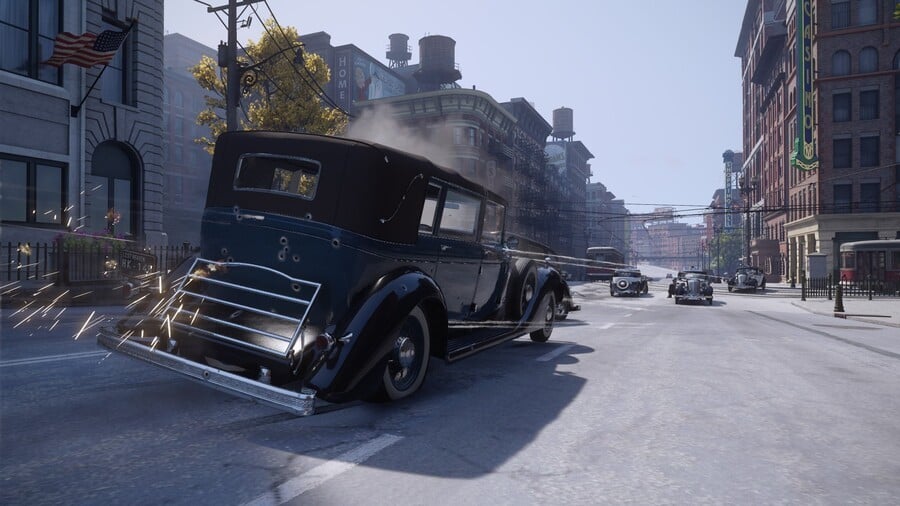
How did you balance the changes in tone for different gameplay elements? Naturally, a cutscene would be a bit more scripted but in what ways did you want to approach tone changes in the middle of gameplay? Specifically, how did you want to approach that sonically? Mechanically that’s generally a process involving lots of people of course, but in what way did you want to musically dictate the flow of things?
As with Mafia III, I was writing the score at the same time that the development team was working on the rest of the game. The way that Matt Bauer and I decided to organize the score was to split it up into two pools of music: thematic pieces and combat-related pieces. The thematic pieces were divided by character themes but varied with different moods, Tommy Calm, Tommy Tension, Salieri Dark, Salieri Calm, etc. The combat music was a multi-tiered intensity level system. I wrote cues for Stealth, Low-Intensity Combat, High-Intensity Combat, and then Chase Intensity Combat.
In order to make it so that any piece of music can move into any other piece of music, the entire score is basically in the key of D minor - all except for the race car cue. That piece doesn’t have to transition into or out of any other cue, so I went a bit nuts with it and changed keys many times throughout the piece just because I could.
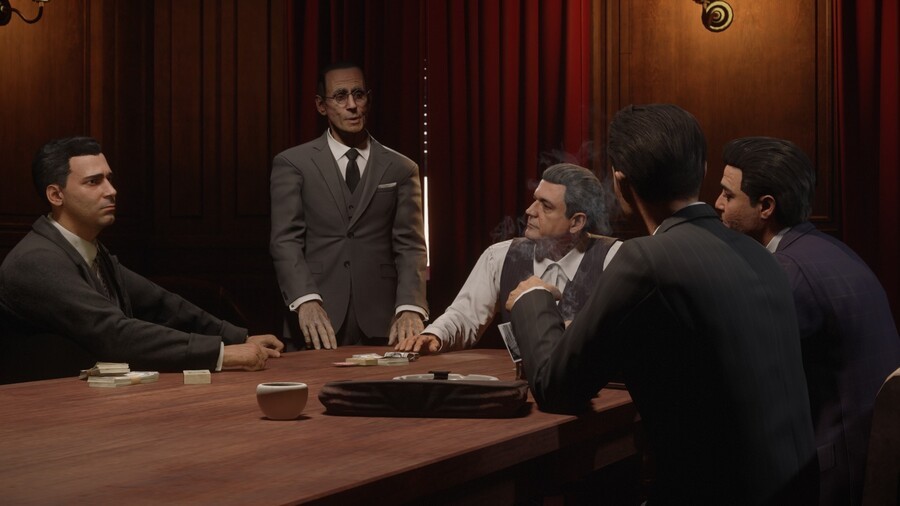
We then recorded the score so that each family of instruments was isolated from the others: strings, brass, winds, percussion. With everything separated like that, Matt could remove elements or combine pieces of different songs into new cues. Then, in addition to the inherent flexibility of the cues themselves, Lead Sound Designer Alexandre Saba implemented an interactive music system that would shift between intensity levels during combat to reflect the threat the player faces. Basically, I worked hard to give Hangar 13 as versatile a score as I could, and then they worked hard to implement it thoughtfully and effectively into the game.
The score has this certain epic sweeping quality to it. Almost swashbuckling in feeling. Particularly when the brass elements show up! What was the evolution of the game’s sound like for you to arrive there? Was it a long process, or did you have a pretty solid idea for what you wanted the game to sound like right away?
I came to the sound fairly quickly, but I actually tried to ignore it at first. As I said, I thought about how the characters were from the 19th century and would have been exposed to classical Catholic music,
opera, and Italian folk music with a touch of American jazz. When I started writing the first in-game cue, I’d written about 30 seconds before I suddenly wrote this little sequence of music. It’s only about one or two bars long, but it instantly reminded me of a classical ballet. There was something about the rhythm, the harmony, the instruments - it just said “classical grace.” And it was odd. I hadn’t intended to go that route, but I suddenly started to think about what it would be like if I could write the score as if it were more of a ballet, a choreographed dance of bodies moving through space - only this dance had tommy guns.
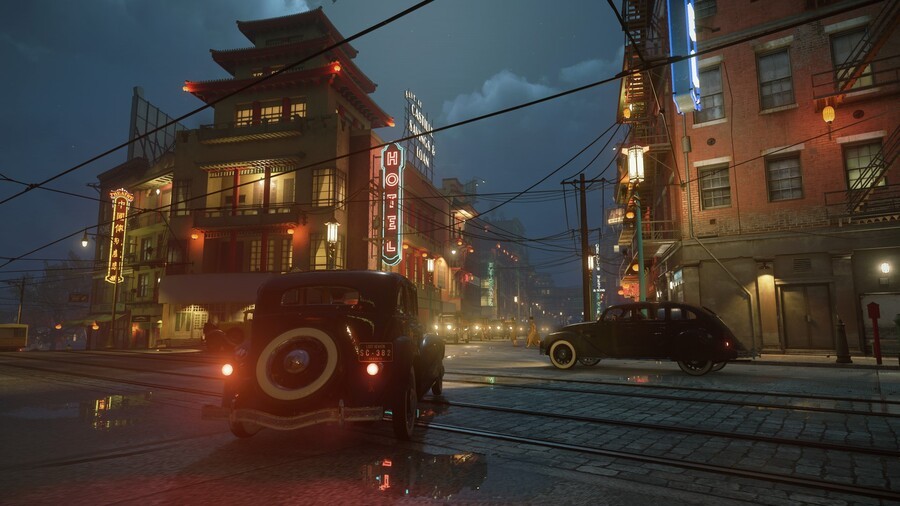
I thought that sounded like a really cool idea, but then I immediately tried to talk myself out of it. It’d be harder. It’d be more work. It’d be riskier. I tried to talk myself into just writing something a little more modern. But after a few days, I found myself coming back to this sound again and again. With its tragic story arc and flawed characters, I started to think of the score less as a ballet and more as an opera - a grand story of human hubris, failure, and frailty set to Romantic Era music. My cues wouldn’t have singers. Instead, dialogue lines and gunfire would be my vocals. I’d write Mafia: Definitive Edition as a bullet opera.
I fell in love with that idea and dove into it headfirst.
What unexpected sounds and styles did you incorporate that you feel worked out exceedingly well or even better than initially anticipated? There are brief glimpses into wildly different soundscapes as you work your way through the soundtrack. Curious to hear how those sounds not only found their way into the final score but helped unify the entire soundtrack even better. Specifically, the song that instigated this was “Smarting Over The Dog,” and the way the trumpet was utilized in this one?
The main stylistic approach was this bullet opera idea, but I definitely colored the score on the edges with some other textures. I wanted to include some jazz into the mix to reflect the 1930s setting for the game. So there’s a cool jazz feel to cues that relate to Tommy and Sarah. And there are some jazz chord voicings in the orchestration work, particularly some of the earlier cues I wrote before getting deeper into the bullet opera approach.
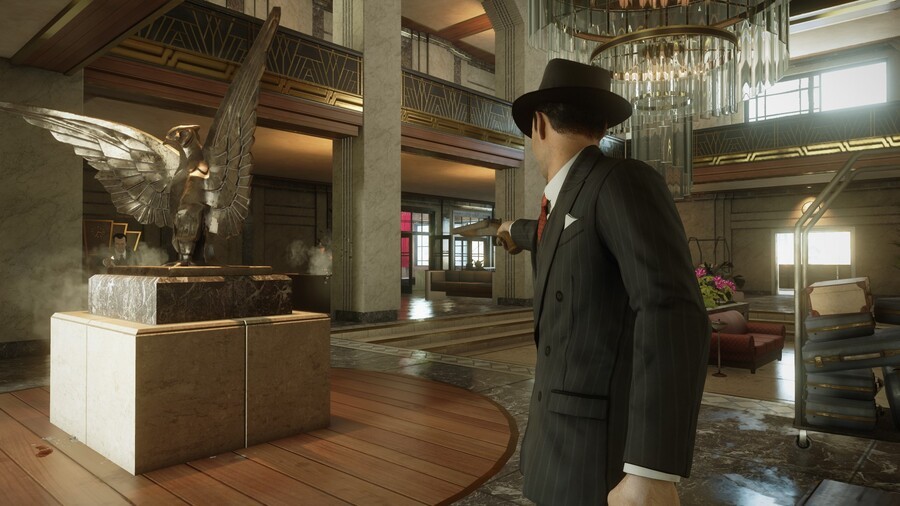
There’s also the Italian folk influences. On Mafia III, the blues score didn’t leave much room for traditional cinematic sounds. But Hangar 13 had asked for more of a traditionally Italian sound for Sal Marcano, the Don of the Marcano crime family. So I had included some mandolin into the score for Sal and taken a listen to some traditional Italian folk music and listened to the harmonies and chord progressions inherent to it. For Don Salieri, those same influences are cranked up to 11 in the new Mafia: DE score and so mandolin makes a return.
But so does an instrument called a cimbalom. Cimbalom is a hammered string instrument from Eastern Europe that, when played by striking the strings rapidly over and over again, it ends up sounding like a bass mandolin. I wanted something that could do the same thing mandolin does but in a lower register. So I made sure to include cimbalom along with the mandolin.
Since we’ve spoken before I won’t ask about your foray into the industry, but rather how you found yourself scoring Mafia: Definitive Edition? I’d have to assume having worked on the series previously was a factor in some way, but there would naturally be other variables at play!
I was actually really lucky in this regard. I’ve worked with Matt Bauer on a number of projects now, including Mafia III and an animated short that we did together called “The Gallant Captain.” Matt and I have a great working relationship together and I was really excited when he called me and said “I have a new game and I’d love to talk to you about writing a score for it.” As a freelance composer, gigs don’t usually find you. You tend to have to go out and find them. So this was a really nice feeling. It felt like I passed the audition with Mafia III and got the callback for Mafia: DE.
We'd like to thank Jesse one last time for agreeing to conduct the interview with us, and also highly recommend giving the soundtrack a listen. It's a spectacular score, and one we can't recommend enough. It'll be available for purchase starting September 25th, so you keep your eyes open for it. You can also read our Mafia: Definitive Edition review through the link.





Comments 0
Wow, no comments yet... why not be the first?
Leave A Comment
Hold on there, you need to login to post a comment...